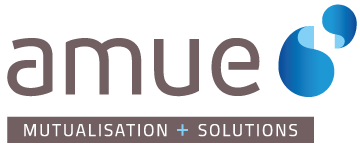 Stefanie Haustein, Vincent Larivière
Stefanie Haustein, Vincent Larivière
« The Use of Bibliometrics for Assessing Research: Possibilities, Limitations and Adverse Effects »
I.M. Welpe, J. Wollersheim, S. Ringelhan, M. Osterloh (dir.) Incentives and Performance. Governance of Research Organizations. Springer (2015) pp. 121-139.
Abstract
Researchers are used to being evaluated: publications, hiring, tenure and funding decisions are all based on the evaluation of research. Traditionally, this evaluation relied on judgement of peers but, in the light of limited resources and increased bureaucratization of science, peer review is getting more and more replaced or complemented with bibliometric methods. Central to the introduction of bibliometrics in research evaluation was the creation of the Science Citation Index (SCI) in the 1960s, a citation database initially developed for the retrieval of scientific information. Embedded in this database was the Impact Factor, first used as a tool for the selection of journals to cover in the SCI, which then became a synonym for journal quality and academic prestige. Over the last 10 years, this indicator became powerful enough to influence researchers’ publication patterns in so far as it became one of the most important criteria to select a publication venue. Regardless of its many flaws as a journal metric and its inadequacy as a predictor of citations on the paper level, it became the go-to indicator of research quality and was used and misused by authors, editors, publishers and research policy makers alike. The h-index, introduced as an indicator of both output and impact combined in one simple number, has experienced a similar fate, mainly due to simplicity and availability. Despite their massive use, these measures are too simple to capture the complexity and multiple dimensions of research output and impact. This chapter provides an overview of bibliometric methods, from the development of citation indexing as a tool for information retrieval to its application in research evaluation, and discusses their misuse and effects on researchers’ scholarly communication behavior.
 Startlingly absent from the literature is the thorough understanding of the views of OER student users, be they campus-based or open learners on the web. This paper presents the results of a mixed method survey of student attitudes to examine their awareness of OER and understanding of quality.
Startlingly absent from the literature is the thorough understanding of the views of OER student users, be they campus-based or open learners on the web. This paper presents the results of a mixed method survey of student attitudes to examine their awareness of OER and understanding of quality. Dans le cadre de la campagne d’évaluation 2015-2016 (vague B), le HCERES a rencontré, lors de quatre réunions, les établissements des académies de Besançon, Caen, Clermont-Ferrand, Dijon, Nantes, Rennes et Rouen, de janvier à mi-février 2015. Voir l'article...
Dans le cadre de la campagne d’évaluation 2015-2016 (vague B), le HCERES a rencontré, lors de quatre réunions, les établissements des académies de Besançon, Caen, Clermont-Ferrand, Dijon, Nantes, Rennes et Rouen, de janvier à mi-février 2015. Voir l'article...








/https%3A%2F%2Fprofilepics.canalblog.com%2Fprofilepics%2F1%2F0%2F1076071.jpg)